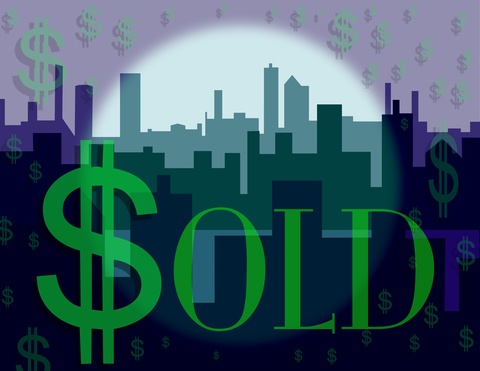
In a move which has surprised many people, President Donald Trump has announced that the US Treasury Department probe into real estate dirty money across six high-end real estate markets will continue. There had been speculation that the probe would end and be “kicked into the long grass” but many are pleasantly surprised this has not been the case. Each and every property market around the world needs to be seen to be “clean” to retain investor confidence going forward. So, what does the Fed crackdown on real estate dirty money actually mean?
Financial Crimes Enforcement Network
The Financial Crimes Enforcement Network (FinCEN) has been fairly busy since the Fed began to look into various high-end real estate markets such as South Florida. This latest extension is for a further six months during which time all shell companies acquiring an expensive property with cash will need to report their ownership structure to the FinCEN. Like so many other property markets around the world, shell companies have long been used by some in the criminal fraternity to inject cash back into the “real market”.
There had been concerns that Donald Trump would look to protect investors in the real estate market but, in reality, what better way to protect them than getting rid of the dirty money?
High-end property markets
In the likes of South Florida it is only properties worth in excess of $1 million which are covered by the Fed investigation at this moment in time. The reality is that money-laundering does not normally occur on relatively small value properties simply because of the risks and the process involved. There needs to be “something in this” for the criminals to take the risk of been found out, having their funds confiscated and perhaps being found out and sent to prison.
It is difficult at this moment in time to confirm how many transactions may involve “dirty money” but one US homeland security official was quoted as suggesting “We come across real estate being purchased with illicit funds once every other case.”. Whether this is true remains to be seen but the revelations in the so-called “Panama Papers” was certainly a wake-up call for governments around the world looking to clamp down on money-laundering operations.
Retaining market confidence
We only need to look at the Indian real estate market to see what impact anti-money-laundering regulations can have. Overnight the Indian government reorganise the denomination of Indian banknotes which led to a significant short-term drop in “cash transactions” in the real estate market. There is no doubt that many innocent investors did suffer in the short term, due to confusion and property price movements, but the longer term situation is now more clear and both domestic and international investors have more confidence.
Some are suggesting that the current Fed operation is nothing but a “data collection exercise” but nobody really believes this. Money-laundering in the real estate market has been a problem for many years and while the criminals have in the past been “one step ahead” there are high hopes that the current investigation will blow this situation wide open. Will we see any big names dragged into money-laundering investigations? What will Donald Trump do in the longer term? Will money-laundering regulations be tightened?

